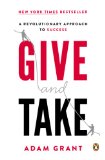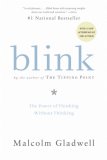Summary | Excerpt | Reading Guide | Reviews | Beyond the book | Read-Alikes | Genres & Themes | Author Bio

Happiness for People Who Can't Stand Positive Thinking
by Oliver BurkemanThe Antidote is aptly titled: the book is both a cure for what ails most guides to happiness and an anti-self-help title of sorts. Author Oliver Burkeman offers compelling introductions to seven philosophies that capitalize on the reality of the negative – versus the popular and permeating positive – to promote happiness. While realists and melancholies will feel quite welcome in The Antidote's pages, all readers who have ever been suspicious of the glib advice to "think positive", or flummoxed by society's obsession with goals and success, are likely to find Burkeman's exploration of these philosophical and spiritual habits of mind fascinating stuff.
Burkeman first introduces the idea of a negative road to happiness via Stoicism, or as he puts it, "the art of confronting the worst-case scenario." His tour then moves to a layman-friendly introduction to Buddhism and one of its most well-known practices, meditation. From there, Burkeman tackles the pitfalls of goal obsession and then moves to the murky topic of self-perception. Embracing insecurity and failure, two difficult concepts, follow next in separate chapters and prepare the way for the final, perhaps most difficult one, the remembrance of death, or memento mori. In his closing words, Burkeman joins these reverse psychologies with a kind of catch-all term taken from the poet John Keats, "negative capability," arguing that they all require an openness to the present and willingness to embrace mystery, and that these combined are, truly, the antidote for seekers of happiness.
Part of the success of the book comes from the author's willingness to immerse himself for a time in each of these so called negative paths to happiness. In several cases, this involved travel and conversational interviews with practitioners and experts. In others, Burkeman was involved in more challenging experiences such as not speaking for nearly a week or, conversely, loudly announcing London tube stops to a train car full of unsuspecting riders. His skill as a writer shines in his ability to properly mix such entertaining, but illustrative, anecdotes with the more meaty discussions concerning psychological scientific research, Greek philosophy and mortality.
I was most moved by what, to me, was the common theme across the spectrum of philosophies – release of perceived control of our lives. This idea was part of each technique Burkeman explored. It is a difficult, mature and, yes, negative concept. Loss or, more accurately, the giving up of our false sense of being in control is terribly difficult. Can it foster happiness? Each reader must be her own judge, but in my opinion, an author who, like Burkeman, can probe such complicated matters of heart and mind in an even-handed and accessible way speaks much more potently than one who would argue with more volume or dogmatism. And even if you're someone who approaches this backwards concept of finding happiness with more skepticism than I did, I believe that Burkeman's research and open-minded exploration in The Antidote will prove thought-provoking – and convincing.
Interesting Link
Oliver Burkeman keeps an occasional, but very interesting blog which focuses mainly on social psychology and human behavior.
![]() This review was originally published in The BookBrowse Review in January 2013, and has been updated for the
November 2013 edition.
Click here to go to this issue.
This review was originally published in The BookBrowse Review in January 2013, and has been updated for the
November 2013 edition.
Click here to go to this issue.

If you liked The Antidote, try these:

by Adam M. Grant
Published 2014
Give and Take highlights what effective networking, collaboration, influence, negotiation, and leadership skills have in common.

by Malcolm Gladwell
Published 2007
Drawing on cutting-edge neuroscience and psychology and displaying all of the brilliance that made The Tipping Point a classic, Blink changes the way you'll understand every decision you make. Never again will you think about thinking the same way.
Your guide toexceptional books
BookBrowse seeks out and recommends the best in contemporary fiction and nonfiction—books that not only engage and entertain but also deepen our understanding of ourselves and the world around us.